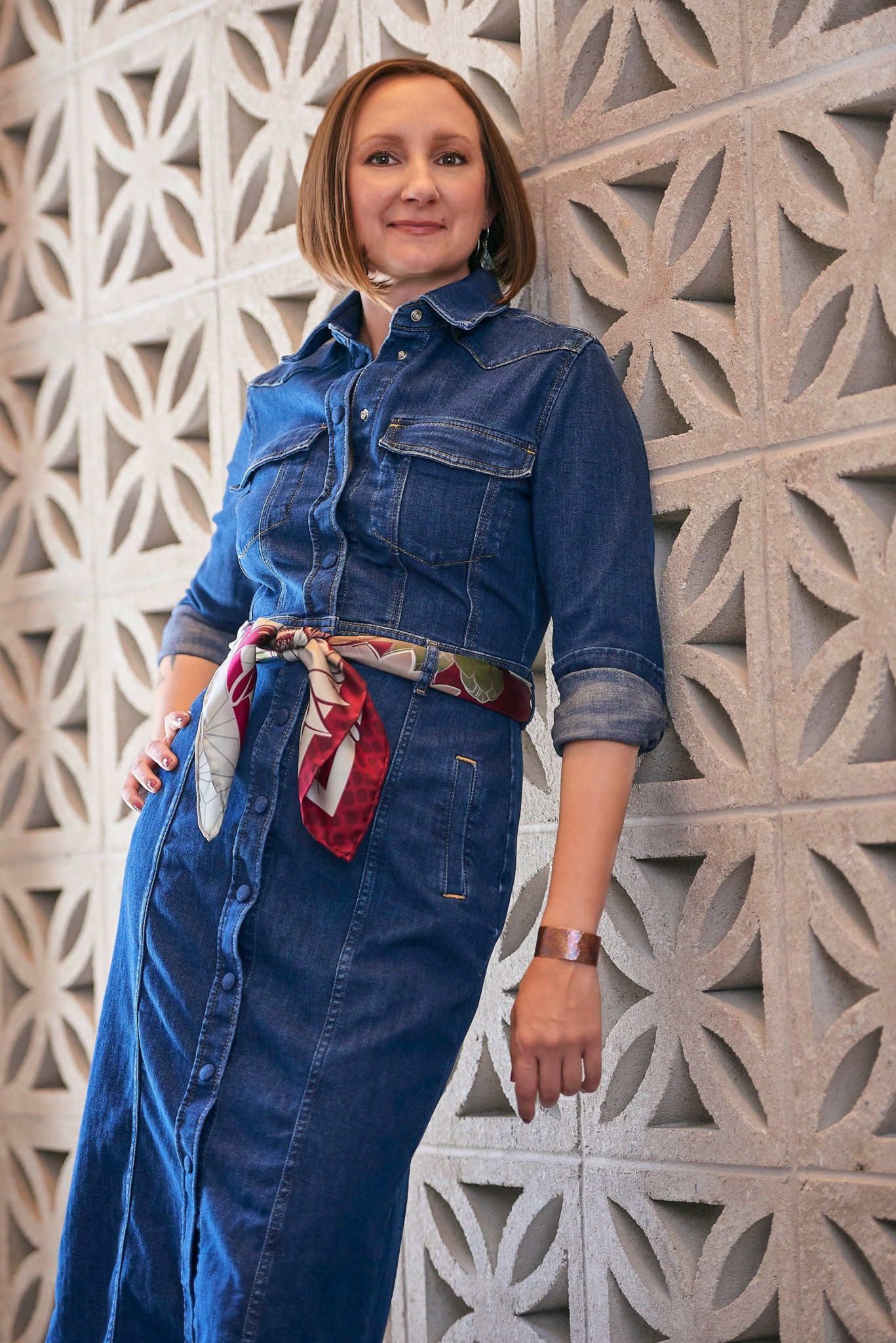We caught up with the brilliant and insightful Jennie Richau a few weeks ago and have shared our conversation below.
Jennie , thanks for joining us, excited to have you contributing your stories and insights. So, naming is such a challenge. How did you come up with the name of your brand?
I spent months collecting words I loved. If a word had a beautiful meaning, sounded great out loud, looked good written down, or just felt catchy, I wrote it down. My phone, journal, and sticky notes were all overflowing. Eventually, I pulled together my favorites on giant Post-its and invited two close friends, Jenn and Christian, to help me choose.
They stared at the lists with about as much enthusiasm as you’d expect from people who hadn’t spent half a year obsessing over letter combinations. Then Jenn suddenly turned to Christian and said, “I know exactly what the name should be.” She wrote it down, showed it to him, and he said, “I was just thinking the same thing!”
I was so hopeful it was one of my top picks.
Then she showed me the paper.
It was my last name.
I was furious! After all that effort they just land on the one word that had been right in front of me the whole time…and one that no one knows how to spell or pronounce?! I protested. Jenn said, “It’s perfect. It’s unique, it’s French, and it’s YOU.”
I stayed grumpy for a few days…but of course, she was right. It was the perfect name, and I’m so happy I embraced it.
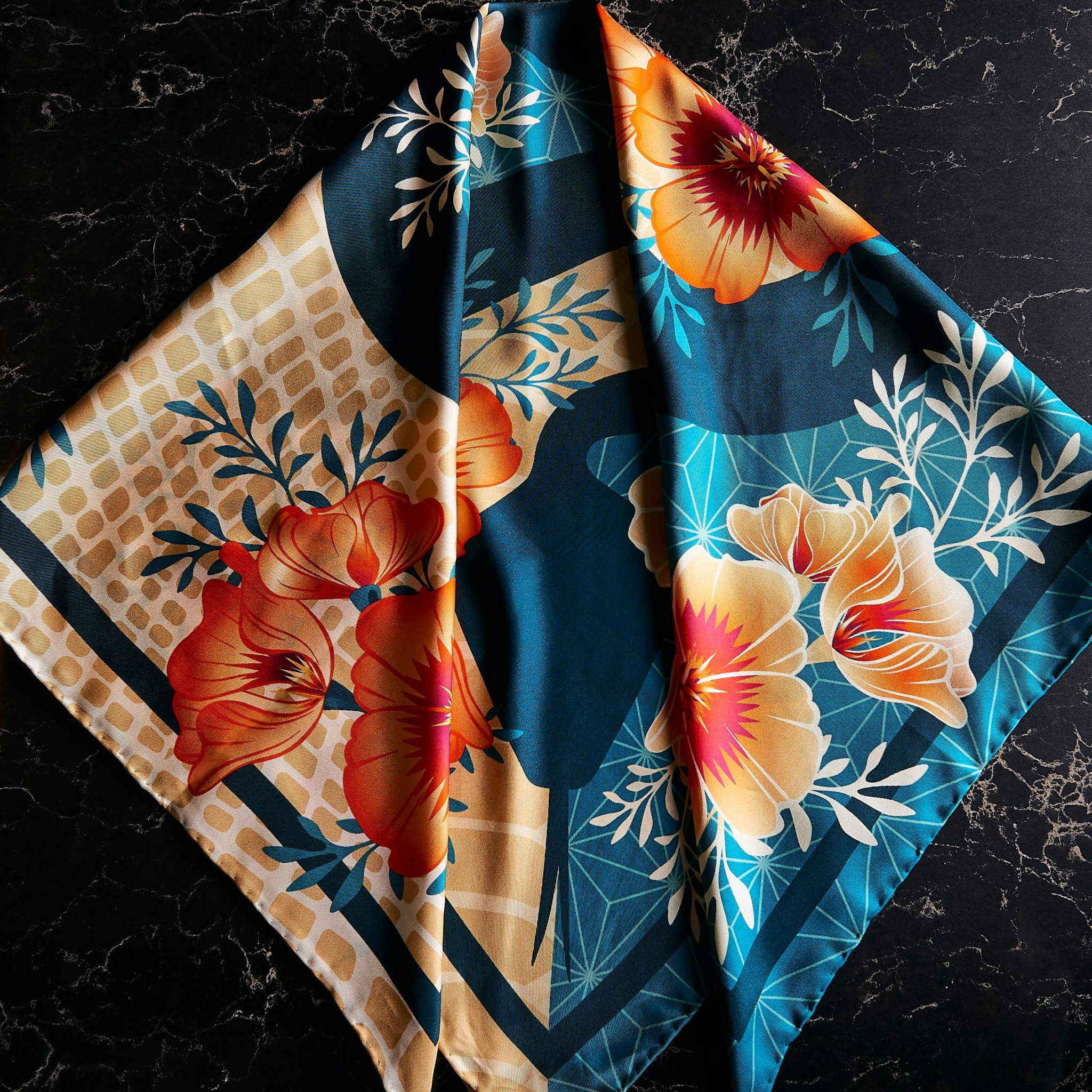

Awesome – so before we get into the rest of our questions, can you briefly introduce yourself to our readers.
I’ve always been creative, but haven’t always worked in a creative field. Growing up, I was constantly making art of various types, and I was the go-to in the family if someone needed a creative eye for anything. That early love for design led me to earn a degree in Industrial Design from Arizona State University. I was drawn to the way it combined creativity with purpose: solving real-world problems with both beauty and function. It was like combining art and science.
After a few short stints in the field, I realized that at that time, I lacked the confidence it would take to build a creative career. I wound up on a different path, first in the craft beer industry, then became a real estate broker. It was in real estate that I really grew into myself, sharpening my business skills and building the confidence I needed to return to my creative roots.
Now, I design luxury silk scarves and am preparing to open an art and accessories retail boutique in Scottsdale. My scarves are designed to add beauty and luxury to everyday life. They’re investment pieces meant to be loved and worn often. I don’t want people to save them for special occasions. I believe every day we’re alive is a special occasion and reason enough to wear our favorite accessories, use the nice silverware, and open that rare bottle of wine.
My work isn’t about solving problems anymore. It’s about adding color, creativity, softness and beauty to the world. I design bold, captivating pieces intended to spark interactions. In an era when much of our attention is focused on our phone screens, I aim to help create genuine, real-world moments. When a stranger stops you to say, “I love your scarf” or “Wow, I love those colors.” That compliment can turn into a smile, a connection, even just a bright spot in someone’s day. We need more of that in our world. Perhaps that is the problem I am trying to solve.
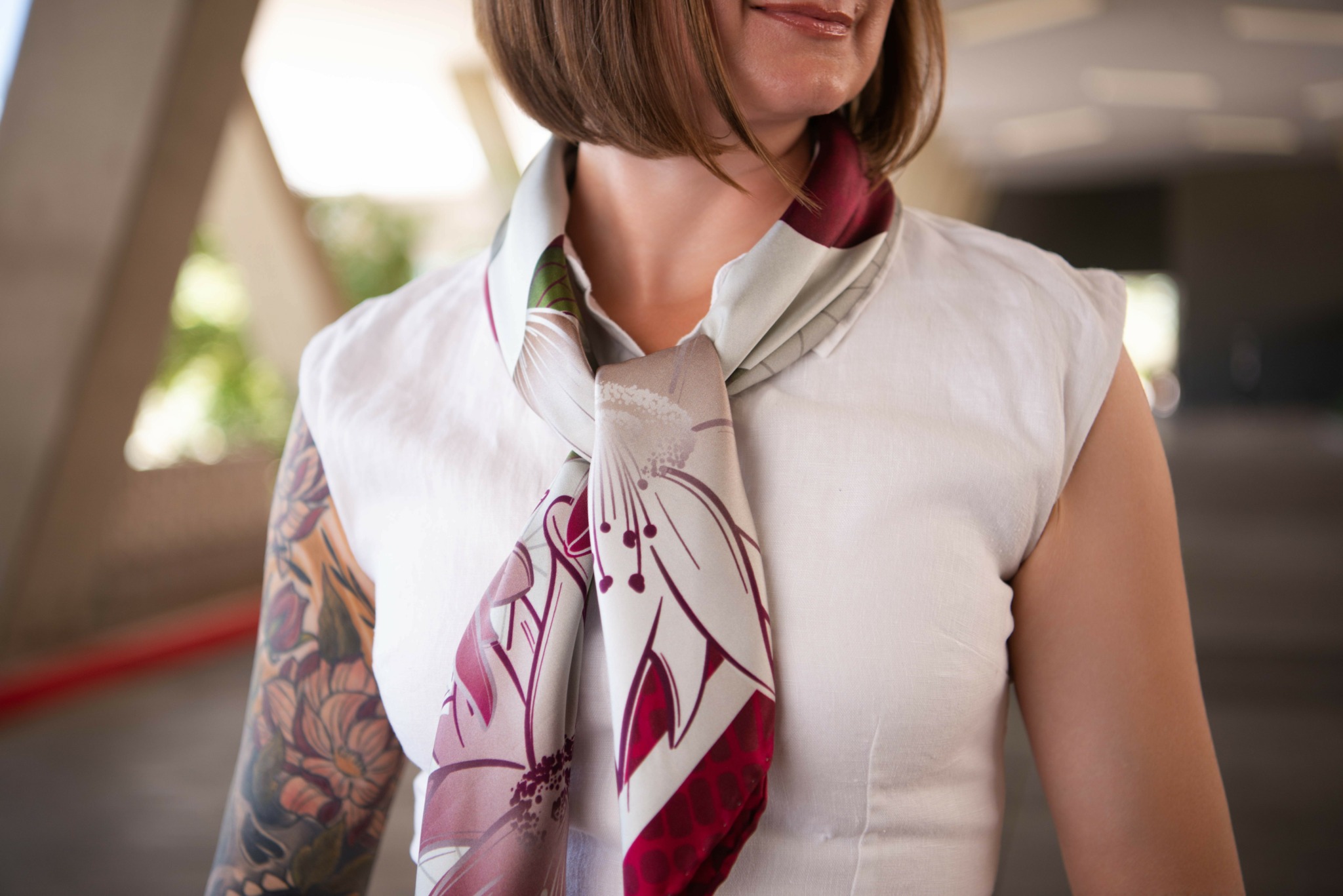

Are there any books, videos or other content that you feel have meaningfully impacted your thinking?
I’ve been following Tim Ferriss’s work for many years and have always appreciated his thoughtful interview style. He goes beyond surface-level conversation to explore deep, meaningful topics: philosophies, habits, mindsets, and stories from extraordinary people. I’ve applied many of the insights I’ve picked up from his guests, his books, and his own reflections to both my personal and professional life.
One moment that really stuck with me was when his guest, Derek Sivers, said, “If it’s not a Hell Yes, it’s a No.” I realized I’d been mostly living by that philosophy without even knowing it, by not letting the “kinda cool” stuff get in the way of what I really wanted. Once I heard it framed so clearly, it became a guiding mantra for me in personal and professional decisions.
Beyond Ferriss, I’m always exploring a mix of podcasts, TED Talks, and other inspiring content that challenges my thinking and reminds me of the incredible possibilities we have in this lifetime.
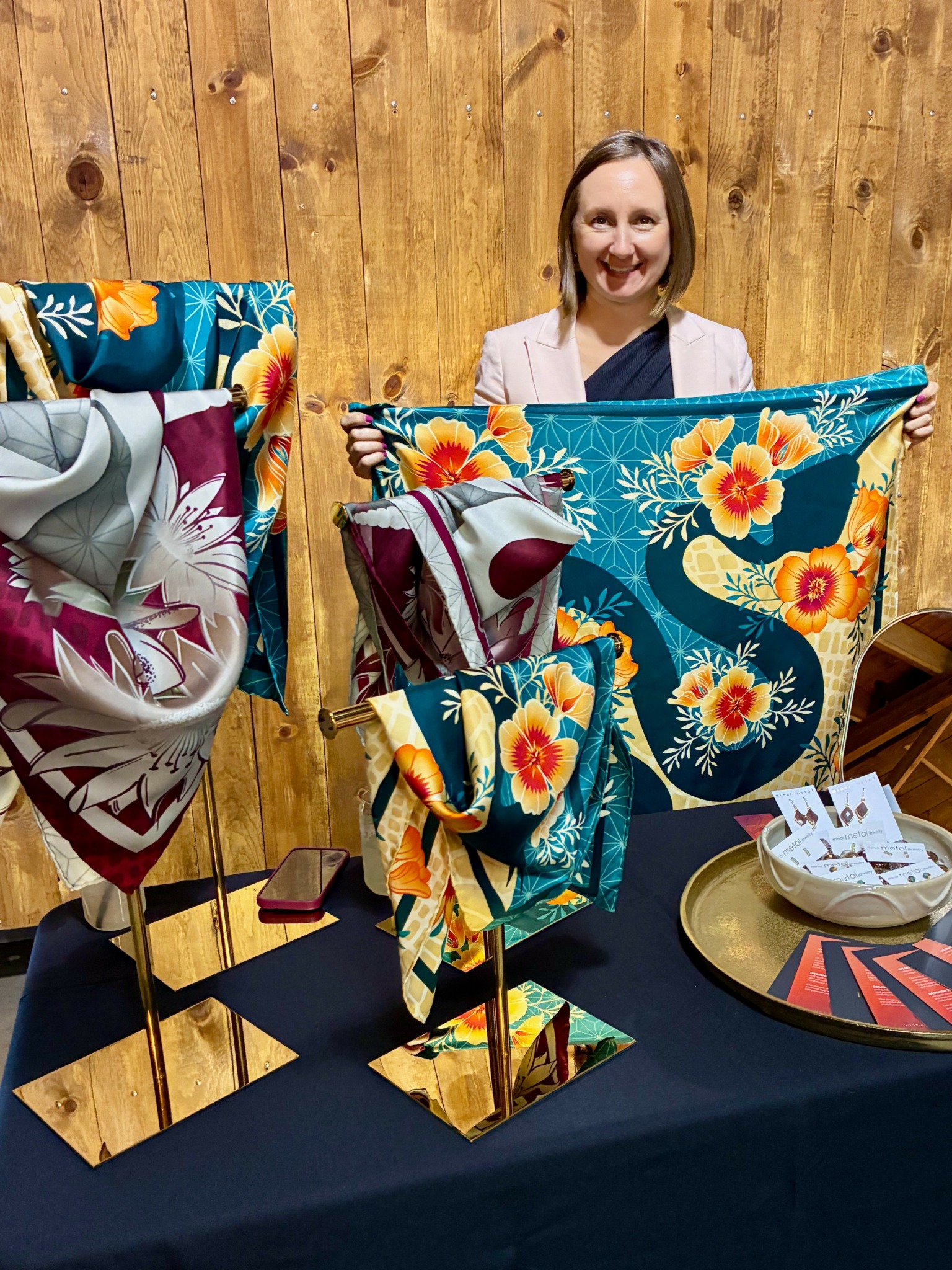
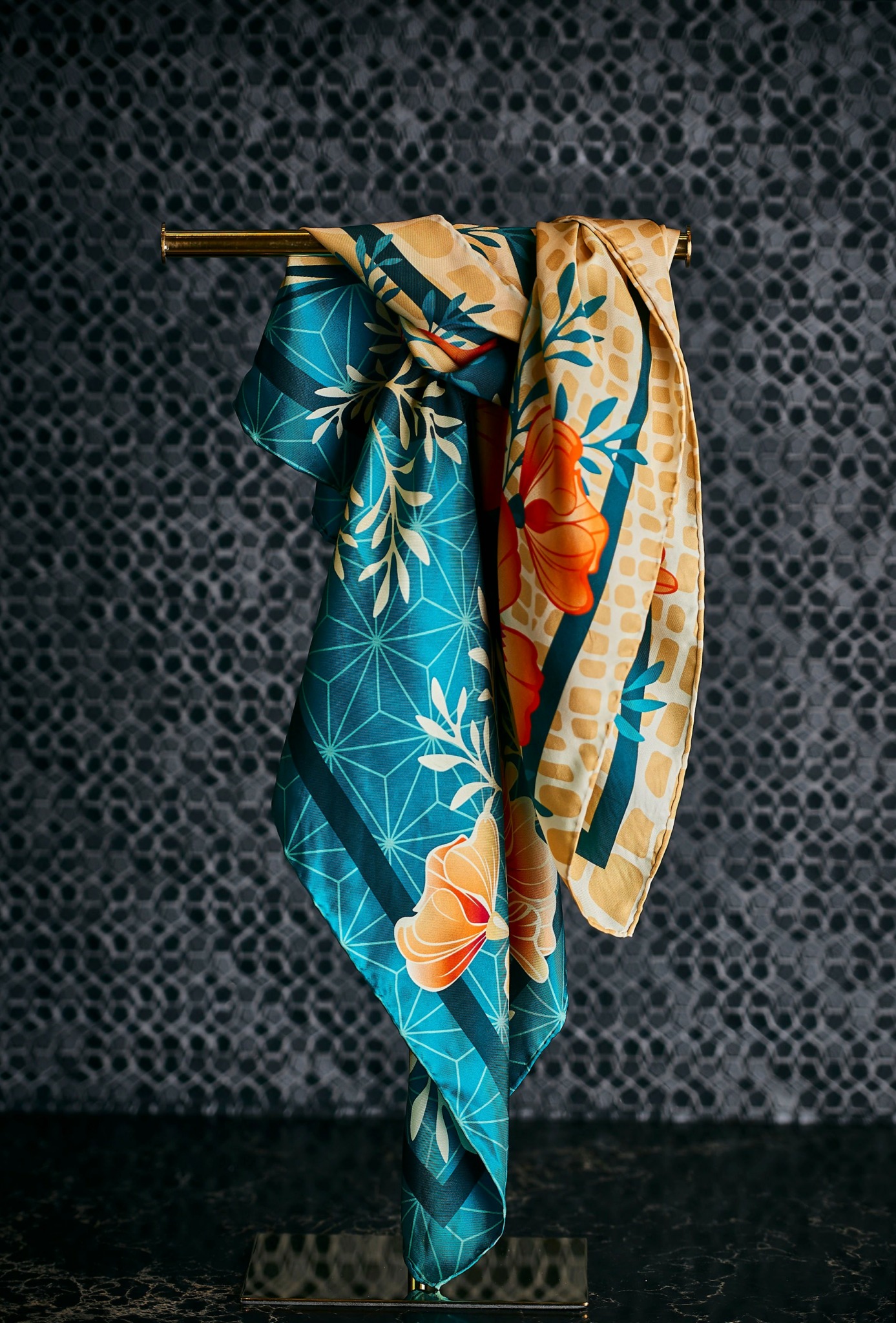
What’s a lesson you had to unlearn and what’s the backstory?
Imposter syndrome is something I’ve definitely had to work through. It’s a common experience for creatives, especially early on, when it’s easy to question your skills or feel like you’re not “there yet,” even after putting in years of effort.
Over time, I’ve come to realize that I’ve grown and honed my skills far more than I was giving myself credit for. By the time people are asking you for help, wanting to buy your art, cheering you on, etc., it’s time to recognize that the world sees you in a different light than you see yourself. The world sees your value far before you do, and sometimes you have to look at yourself from an outsider’s perspective to recognize what you have achieved.
Contact Info:
- Website: https://www.studiorichau.com
- Instagram: @studiorichau
- Linkedin: jennierichau
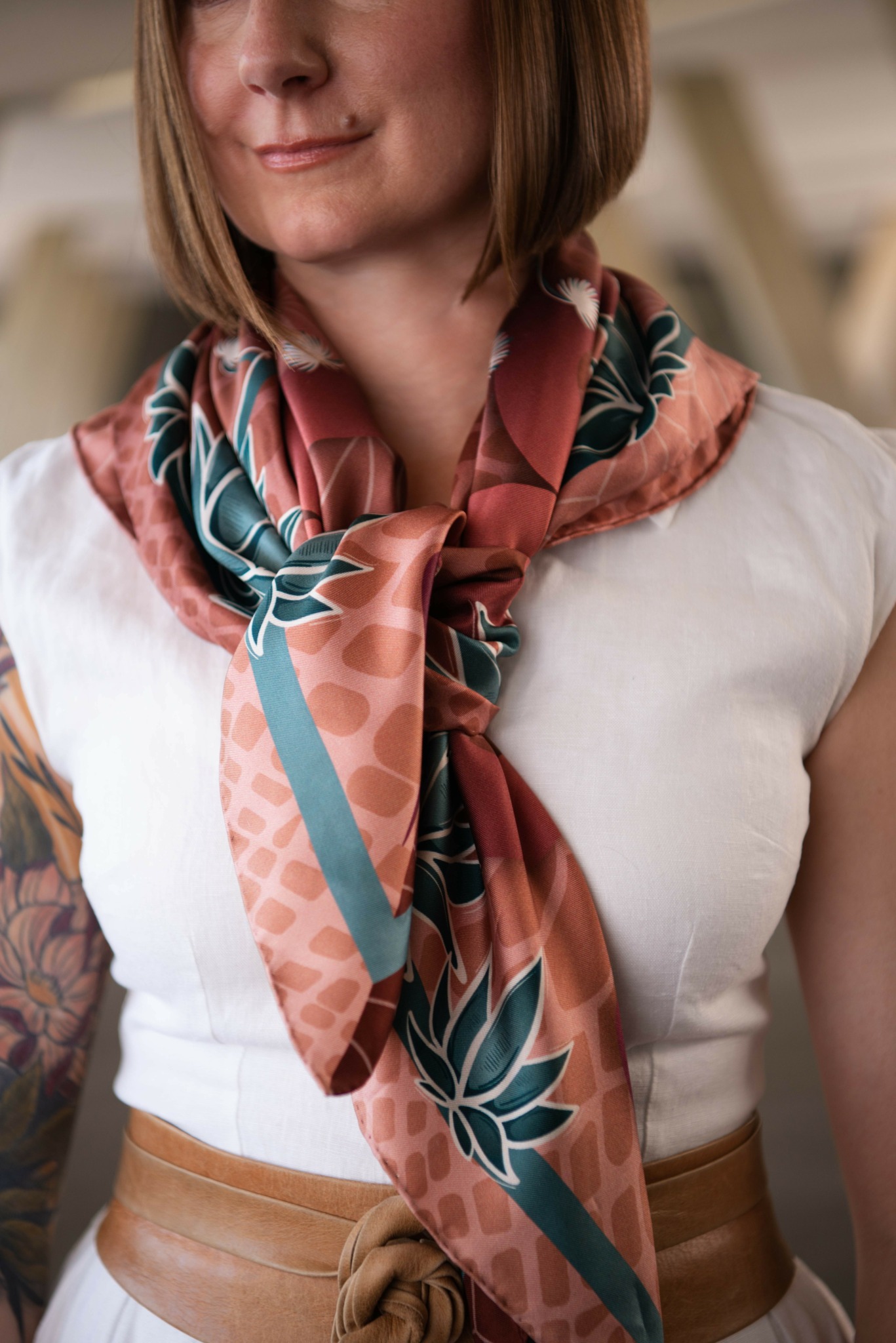
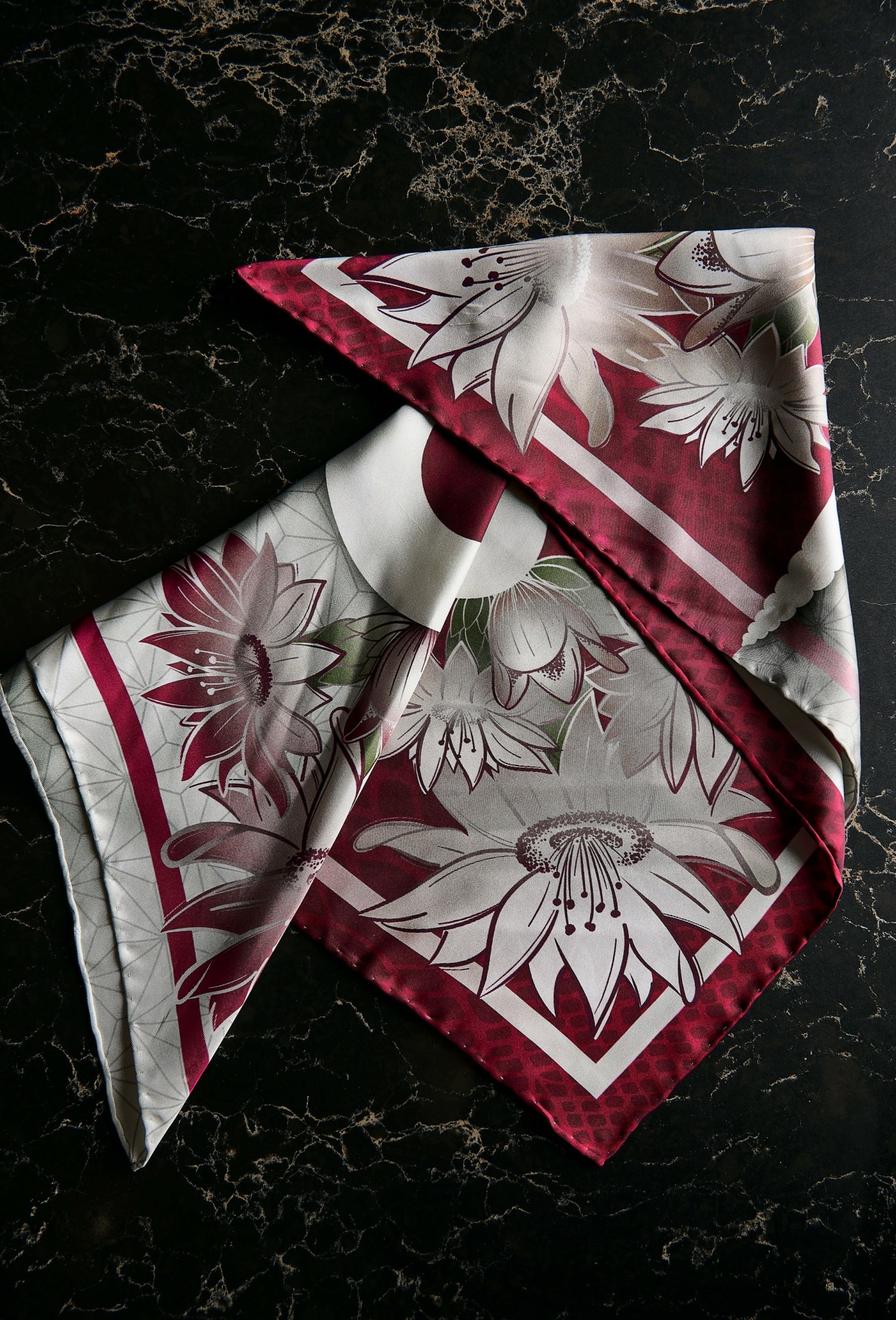
Image Credits
Photos by Neal Mei.


